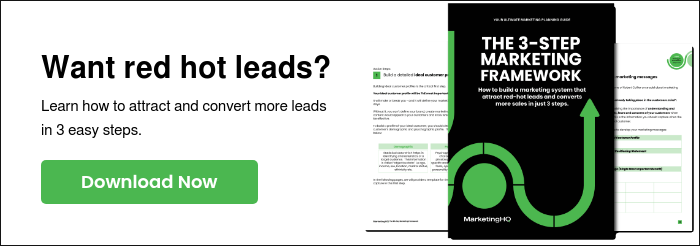
In marketing, lead qualification is a crucial step in the sales and marketing process. It helps companies identify potential customers who are most likely to make a purchase.
However, not all leads are created equal. Understanding the difference between Marketing Qualified Leads (MQLs) and Sales Qualified Leads (SQLs) can significantly impact your marketing success. With this post, we aim to help business owners and marketing professionals unfamiliar with these concepts understand their importance and how to leverage them effectively.
What is a Marketing Qualified Lead (MQL)?
A Marketing Qualified Lead (MQL) is a lead that has shown interest in your company's products or services through various marketing channels. These leads have engaged with your marketing efforts but are not yet ready to make a purchase. MQLs are identified based on specific criteria, such as:
- Engagement with marketing content (e.g., blog posts, webinars, social media)
- Website visits and interactions
- Downloading resources (e.g., eBooks, whitepapers)
- Subscribing to newsletters
The role of marketing is to nurture these leads by providing valuable content and information, guiding them through the buyer's journey until they are ready to be handed over to the sales team.
What is a Sales Qualified Lead (SQL)?
A Sales Qualified Lead (SQL) is a lead that has been vetted by the marketing team and deemed ready for the sales team to engage with. These leads have shown a higher level of interest and are more likely to make a purchase. SQLs are identified based on criteria such as:
- Readiness to make a purchase
- Budget availability
- Authority to make purchasing decisions
- Specific needs and requirements
- Timeline for making a decision
The sales team's role is to convert these leads into customers by addressing their needs, answering their questions, and providing personalised solutions.
Key Differences Between MQLs and SQLs: While both MQLs and SQLs are essential for a successful sales and marketing strategy, they represent different stages of the buyer's journey.
Here are the key differences:
- Stage in the Buyer’s Journey: MQLs are at the top or middle of the funnel, while SQLs are at the bottom, closer to making a purchase.
- Level of Interest: MQLs have shown interest but need more nurturing, whereas SQLs are ready for direct sales engagement.
- Criteria for Qualification: MQLs are qualified based on engagement with marketing efforts, while SQLs are qualified based on readiness to buy and specific criteria like budget and authority.
Why Understanding the Difference Matters: Distinguishing between MQLs and SQLs is crucial for several reasons:
- Resource Allocation: Properly identifying and categorising leads ensures that marketing and sales teams allocate their resources efficiently.
- Improved Conversion Rates: By nurturing MQLs and targeting sales efforts at SQLs, businesses can enhance their conversion rates and close more deals.
- Effective Strategies: Understanding the difference helps in developing targeted marketing and sales strategies that cater to the specific needs of each lead type.
In summary, understanding the difference between Marketing Qualified Leads (MQLs) and Sales Qualified Leads (SQLs) is vital for optimising your sales and marketing efforts. By adequately qualifying and nurturing leads, businesses can enhance their conversion rates, allocate resources more efficiently, and develop more targeted marketing strategies. Implementing these practices can lead to greater success and growth for your company.
Recent Posts




Author: Chris Dale
Chris Dale is the lead Fractional CMO and Managing Director of MarketingHQ. He is a Certified Practising Marketer with over 25 years marketing experience.







